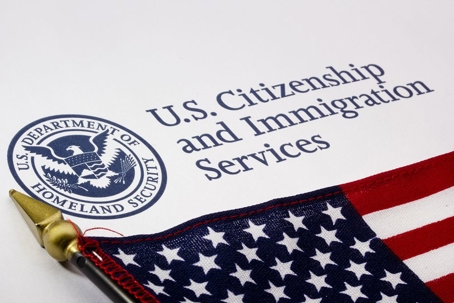Not only has the Trump administration made a tremendous effort to reduce illegal immigration, but it has also made legal immigration a more challenging process by strengthening the ability of the Department of Homeland Security to enforce U.S. immigration laws.
By the end of 2018, several changes were made to U.S. Citizenship and Immigration Services (USCIS) protocol and regulations which impact legal immigrants, especially regarding deportation. Yet, there are some rules which benefit them.
The following are five changes/updates to U.S. immigration law which affect immigrants in 2019:
- New deportation procedure – Notice to Appear (NTA) is a summons for immigrants to appear in immigration court to begin the deportation process. The list of reasons to issue an NTA now includes receiving government aid/public benefits, committing a crime or fraudulent act, and denial of immigration benefits.
- No warning when denying applications – Requests for Evidence (RFE) and Notice of Intent to Deny (NOID) have previously been issued before USCIS adjudicators deny immigration applications, giving applicants and their lawyers a chance to correct mistakes or provide more documentation. Now, immigration officials do not need to first issue these warnings before denying applications.
- Changes in medical and vaccination examinations – In order for permanent residence applicants to meet public health requirements, they must be first examined by a doctor. To make the process faster, applicants can have Form I-693 signed by a doctor up to two months prior to filing for permanent residency.
- USCIS could waive interview for a green card through marriage – After two years of marriage, an interview is held to confirm the legitimacy of union and remove an immigrant spouse’s conditional status of legal residence. However, this interview often makes couples nervous. Now, USCIS officials have an option of waiving the interview.
- Prove joint residence while married to apply for U.S. citizenship – Before a spouse can file for U.S. citizenship based on marriage, the couple must first stay married and live together for at least three years. If the marriage ends before the three-year period, then he/she is unable to apply for naturalization.
For more information about the recent changes to U.S. immigration laws, contact our St. Charles immigration attorney at Smith Law Offices, LLC today.

